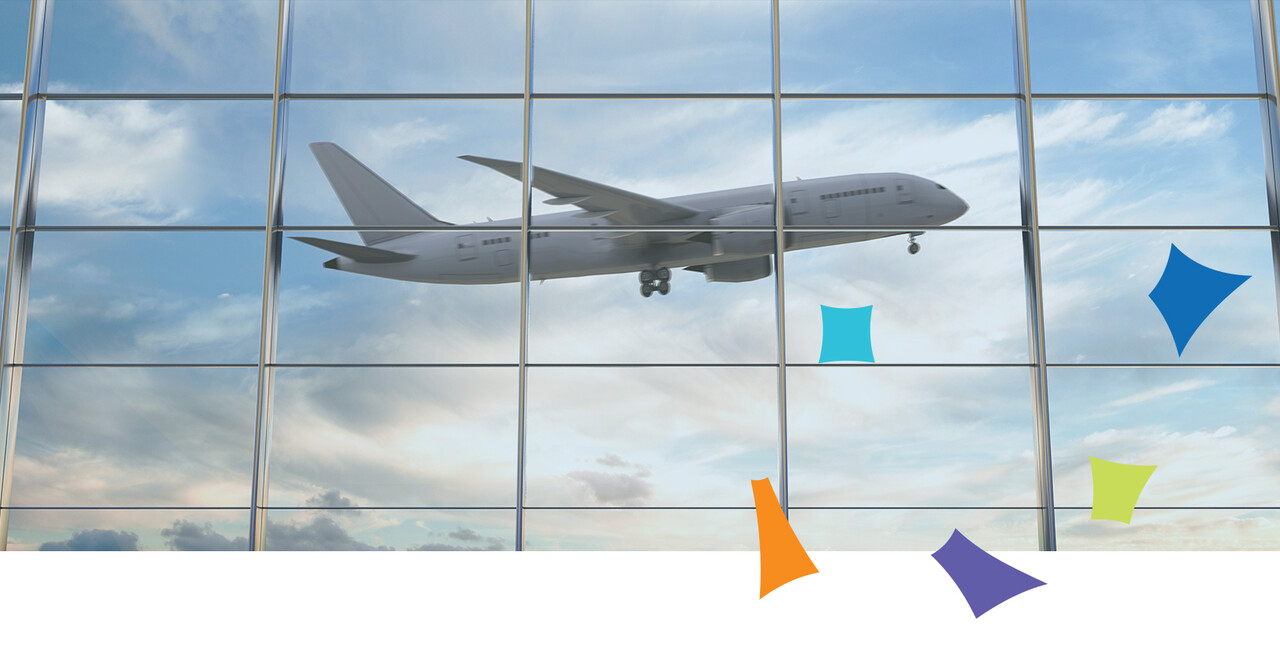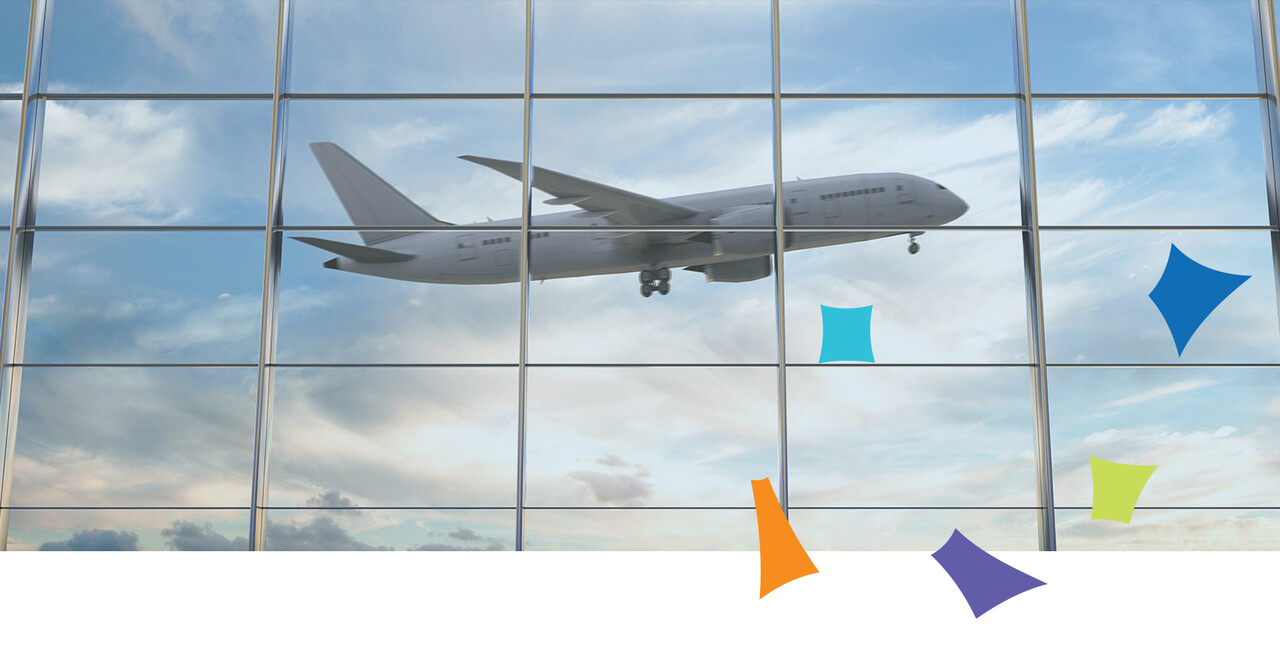Scroll down

Is sustainable aviation fuel the key to greener aviation?
As the aviation sector looks to cut its carbon emissions, sustainable aviation fuel is becoming the only viable solution for airlines.
The aviation sector is vital to the global economy, but also a major source of greenhouse gas (GHG) emissions. Reducing the sector’s impact is essential for the transition to a low-carbon economy. Among the possible solutions, sustainable aviation fuel (SAF) is often seen as the most promising.
By burning fuels, airlines are responsible for producing between 2.5 and 3.5% of all human-induced CO2 emissions. In 2019, this meant that the sector was responsible for 915 million tons of the 43 billion tons of CO2 emissions created due to human activity.
But aviation is also one of the most valuable forms of transport. While airlines carry only 1% of the world’s trade shipments, it accounts for over 35% of the value of such trade. Generating just under $1 trillion in GDP, and supporting millions of jobs around the world.
Decarbonizing the aviation sector is an important step towards creating more sustainable transport solutions. At Alfanar Projects, we’re committed to generating innovative solutions to tomorrow’s aviation fuel needs.
The decarbonization challenge
Attempts to make aviation more sustainable are not new. But while efforts and investment into new and alternative fuel solutions are reaching new heights, decarbonizing this important sector is complex. It requires close collaboration across the sector, as well as with government authorities, and a range of innovative technologies and solutions.
It also needs to make commercial sense. The sector’s importance to the global economy makes cost-efficiency a top priority for the integration of any SAF solutions. Many businesses depend on the reliability and affordability of aviation to operate their supply chains. With alternative fuel sources typically costing up to eight times the price of existing jet fuel, the day-to-day operations of airlines and airports would cost significantly more, potentially eroding the sector’s competitiveness.
While alternative sources of liquid fuel are being tested, there aren’t many solutions that can be rapidly scaled-up at cost-effective prices that are as efficient and reliable as fossil-derived jet fuel. The jet fuel used today is extremely energy efficient, packing a lot of energy into a relatively lightweight source. And, at a highly attractive price, there aren’t many alternative fuel sources that can compete with fossil-derived jet fuel.
Finally, while the burning of fossil fuels to power aircraft creates significant GHG emissions, it isn’t the only issue facing the decarbonization of aviation. Airports themselves can generate significant scope 1, 2 and 3 GHG emissions: from fuel storage to transportation to energy efficient buildings and hangars, upgrading key aviation infrastructure is another area where decarbonization efforts need to be prioritized.
A sustainable fuel for the future
SAF is the most promising solution for reducing fossil fuel use in the aviation sector. It is a sustainably sourced liquid fuel that can be blended with existing fossil-based jet fuel to maintain energy efficiency, while reducing GHG emissions by as much as 80% – all without needing any alterations to jet engines and fuel tanks.
Despite having a similar chemical composition to fossil-based jet fuel, SAF can be procured more sustainably, through sustainable feedstocks such as waste oils, fats, biomass, food waste, commercial waste or municipal solid waste (MSW) or commercial waste containing packaging, paper, textiles, etc.
At Alfanar Projects, we are already scaling up our plans and development activities related to SAF. Major airlines are quickly moving to adopt SAF as an effective way of reducing their GHG emissions. Although SAF is only currently used in 0.1% of airline flights, production and demand are already growing rapidly. Global production of SAF in 2022 reached 300 million liters – a significant 200% increase on 2021’s levels. To offset 65% of fossil-derived jet fuel, production will need to increase to 450 billion liters by 2050, simultaneously representing an opportunity for production partners but also a major challenge.
The Middle East is rising to the challenge
Economies in the Middle East rely on air travel to make a major contribution to their economies. The Middle East is already a major airline connection hub, connecting flights all around the world, and boasting the largest airport in the world, King Fahd International Airport in Dammam, Saudi Arabia.
But aviation also makes a major contribution to domestic economies. In Saudi Arabia, 594,000 jobs are supported by the aviation industry with 5.6% of its GDP supported by air travel and tourists arriving by air. With sustainability at the heart of the Saudi 2030 Vision, decarbonizing aviation is a priority.
But in the high temperatures of the Middle East, procuring locally produced SAF presents some logistical challenges. With only heat-resistant plants growing in the region, producers will have to explore innovative technologies to unlock enough feedstock to power SAF production locally. Despite this challenge, airlines in the Middle East are continuing to explore the feasibility of SAF as a solution through partnerships and collaboration. For example, Qatar Airways is planning to run 10% of its fleet on SAF by 2030, while Emirates has signed a Memorandum of Understanding with American engine manufacturer GE Aviation to run a test flight 100% powered by SAF.
At Alfanar Projects, we recognize the importance of SAF in creating a greener aviation sector, and we’re delighted to be engaged in projects supporting the production of SAF. We’re currently developing the Lighthouse Green Fuels project in the UK. The LGF project is currently in the FEED phase with construction expected to start in 2024. Once completed, this facility will convert around one million tons per annum (1 Mtpa) of residual solid waste feedstock (such as municipal solid waste, refuse derived fuel, or commercial and industrial waste) into SAF. Producing more than 130,000 tonnes of SAF a year, this project will provide a vital source of sustainable fuel to the aviation sector globally. Alfanar Projects has plans to develop several other SAF projects in the UK, Europe, and the Middle East by 2035.
The King Salman International Airport, expected to be operational by 2030, will see the construction of one of the busiest airports in the world, while ensuring the construction is as sustainable as possible. The design will incorporate cutting-edge green initiatives, while being powered by renewable energy and achieving the LEED Platinum certification, confirming that the construction meets globally recognized sustainability standards.
A hopeful future
Decarbonizing aviation while ensuring negative impacts aren’t passed on to consumers and the global economy is not an easy challenge. When it comes to ensuring that sustainable fuels can be more smoothly integrated into the aviation sector, collaboration and partnership are key. At Alfanar Projects, we harness decades of project development, engineering construction and technology expertise to continually evolve our approach to developing sustainable infrastructure for the future.


